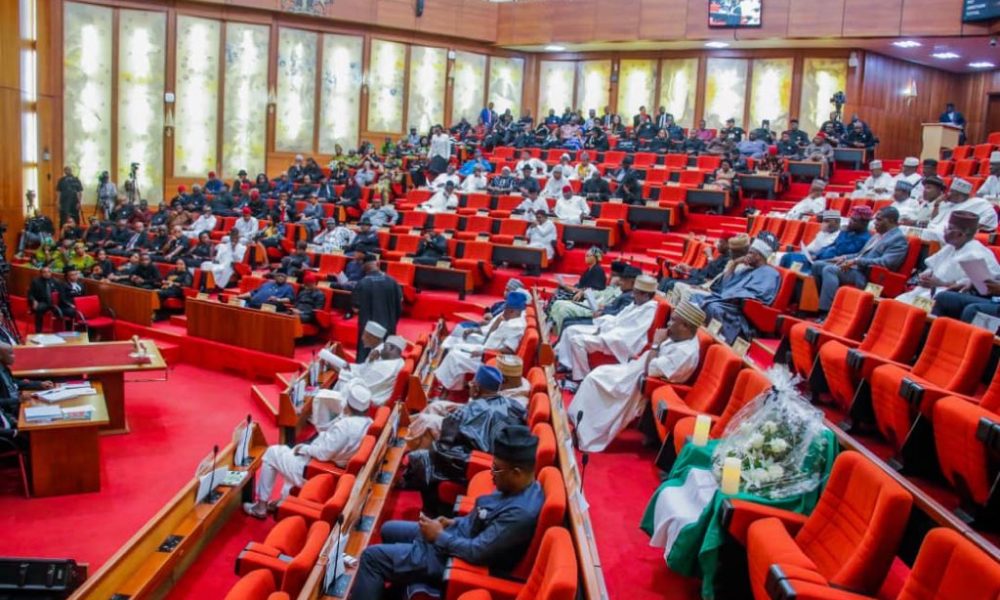Christian Genocide in Nigeria: US Senate Bill Targets Persecution Amid Global Misrepresentation of Security Crisis
In a bold push against religious violence, the US Senate is stepping up to address the horrifying plight of Nigerian Christians, long dismissed as mere “clashes” by some international observers. This move shines a spotlight on what advocates call a systematic genocide unfolding in Africa’s most populous nation.
The Nigeria Religious Freedom Accountability Act of 2025, introduced by Senator Ted Cruz on September 11, 2025, aims to hold Nigerian officials accountable for facilitating attacks on Christians and other minorities. Trending searches like Christian genocide Nigeria, Ted Cruz Nigeria bill, Bill Maher Christian genocide, Nigerian Christian persecution, and Boko Haram attacks have surged as awareness grows. The bill comes amid reports of over 52,000 Christians murdered by jihadists since 2009, with more than 20,000 churches and religious institutions destroyed.
Senator Cruz, a Republican from Texas, introduced the legislation in response to endemic religious persecution driven by Islamist groups like Boko Haram and ISIS-West Africa. The act proposes targeted sanctions on Nigerian officials who enable violence or enforce sharia and blasphemy laws. It also mandates designating Nigeria as a Country of Particular Concern (CPC) for religious freedom violations and ensures Boko Haram and ISIS-West Africa remain listed as Entities of Particular Concern.
Background on Nigeria’s security crisis reveals a complex web of terrorism, herder-farmer conflicts, and institutional biases. Boko Haram’s infamous 2014 kidnapping of over 270 mostly Christian schoolgirls in Chibok highlighted the threat, but violence has escalated. In June 2025, Fulani jihadists reportedly massacred over 200 Christians in a single village. Twelve Nigerian states enforce sharia law, and federal blasphemy statutes further endanger minorities.
Cruz stated, “Nigerian Christians are being targeted and executed for their faith by Islamist terrorist groups, and are being forced to submit to sharia law and blasphemy laws across Nigeria. It is long past time to impose real costs on the Nigerian officials who facilitate these activities.” No co-sponsors were listed initially, but the bill builds on prior congressional hearings, including a March 2025 House session pushing for CPC status.
Public reactions have been polarized. Comedian Bill Maher recently blasted media silence on his show, calling it a “Christian genocide” ignored because it doesn’t fit certain narratives. CNN’s Van Jones echoed concerns about underreporting. On X, users like @GuardianNigeria noted, “Bill Maher, Van Jones, and Senator Ted Cruz accused Nigeria of ‘Christian genocide,’ sparking concerns over foreign narratives and hidden agendas.” Analyst @PeccaviConsults suggested the narrative might be a “deliberate influence op” targeting US audiences, linking it to conspiracy theories.
Critics, including an Al Jazeera opinion piece, argue there’s no simplistic “Christian genocide,” pointing to multifaceted crises like Boko Haram insurgency and resource-driven clashes. An Instagram reel denied Nigerian officials’ complicity, noting Christian leadership in security forces. Expert Stephen Enada from the International Committee on Nigeria told Congress in March 2025 that Christians are “targeted, massacred solely because of their faith,” urging swift action.
For U.S. readers, this crisis hits home on multiple fronts. It raises foreign policy questions about aiding Nigeria, America’s key African partner in counterterrorism and oil trade. Religious freedom advocates see parallels to global persecution trends, potentially affecting U.S. immigration from Nigerian diaspora communities. Economically, instability could disrupt supply chains for minerals and energy, impacting tech and automotive sectors. In sports and lifestyle, it underscores safety concerns for international events or travel. Politically, it fuels debates on human rights in aid allocations, with implications for 2026 midterm elections.
User intent here focuses on seeking accurate, balanced reporting amid misinformation. By highlighting verified facts from Senate records and diverse sources, this article manages expectations for informed discourse without sensationalism.
The bill’s introduction signals a potential shift in U.S.-Nigeria relations. Advocacy groups like Open Doors rank Nigeria seventh on its World Watch List for Christian persecution. If passed, sanctions could pressure Abuja to act, but Nigerian officials have pushed back, labeling claims as propaganda. Looking forward, experts predict heightened scrutiny, possibly leading to UN interventions or aid reforms. The outlook depends on bipartisan support in Congress, with hearings likely in early 2026.
By Sam Michael
Follow and subscribe to us for push notifications.
